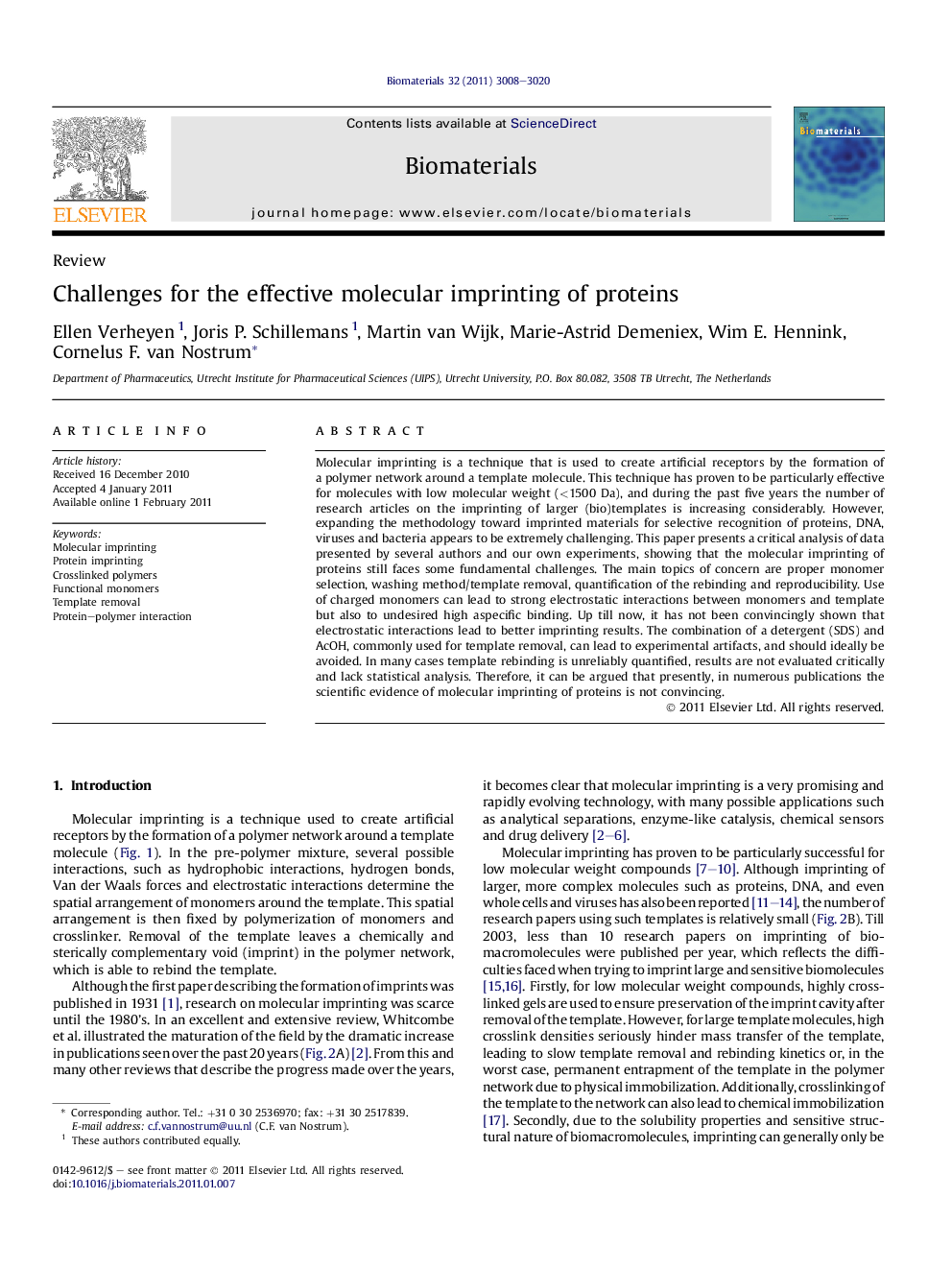| کد مقاله | کد نشریه | سال انتشار | مقاله انگلیسی | نسخه تمام متن |
|---|---|---|---|---|
| 10229686 | 546 | 2011 | 13 صفحه PDF | دانلود رایگان |
عنوان انگلیسی مقاله ISI
Challenges for the effective molecular imprinting of proteins
دانلود مقاله + سفارش ترجمه
دانلود مقاله ISI انگلیسی
رایگان برای ایرانیان
کلمات کلیدی
موضوعات مرتبط
مهندسی و علوم پایه
مهندسی شیمی
بیو مهندسی (مهندسی زیستی)
پیش نمایش صفحه اول مقاله

چکیده انگلیسی
Molecular imprinting is a technique that is used to create artificial receptors by the formation of a polymer network around a template molecule. This technique has proven to be particularly effective for molecules with low molecular weight (<1500Â Da), and during the past five years the number of research articles on the imprinting of larger (bio)templates is increasing considerably. However, expanding the methodology toward imprinted materials for selective recognition of proteins, DNA, viruses and bacteria appears to be extremely challenging. This paper presents a critical analysis of data presented by several authors and our own experiments, showing that the molecular imprinting of proteins still faces some fundamental challenges. The main topics of concern are proper monomer selection, washing method/template removal, quantification of the rebinding and reproducibility. Use of charged monomers can lead to strong electrostatic interactions between monomers and template but also to undesired high aspecific binding. Up till now, it has not been convincingly shown that electrostatic interactions lead to better imprinting results. The combination of a detergent (SDS) and AcOH, commonly used for template removal, can lead to experimental artifacts, and should ideally be avoided. In many cases template rebinding is unreliably quantified, results are not evaluated critically and lack statistical analysis. Therefore, it can be argued that presently, in numerous publications the scientific evidence of molecular imprinting of proteins is not convincing.
ناشر
Database: Elsevier - ScienceDirect (ساینس دایرکت)
Journal: Biomaterials - Volume 32, Issue 11, April 2011, Pages 3008-3020
Journal: Biomaterials - Volume 32, Issue 11, April 2011, Pages 3008-3020
نویسندگان
Ellen Verheyen, Joris P. Schillemans, Martin van Wijk, Marie-Astrid Demeniex, Wim E. Hennink, Cornelus F. van Nostrum,